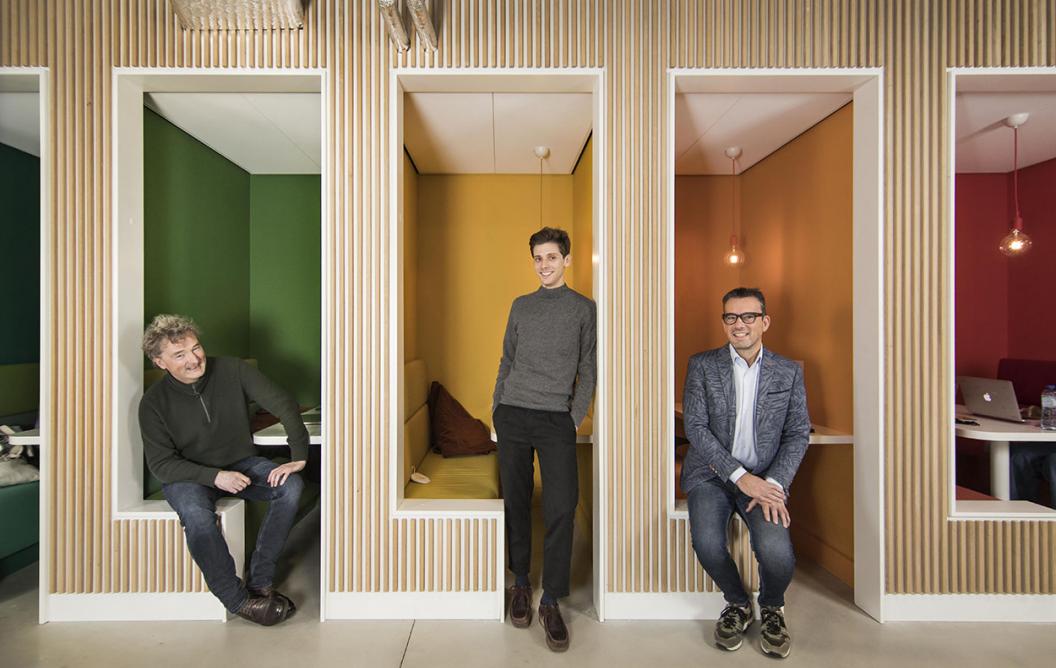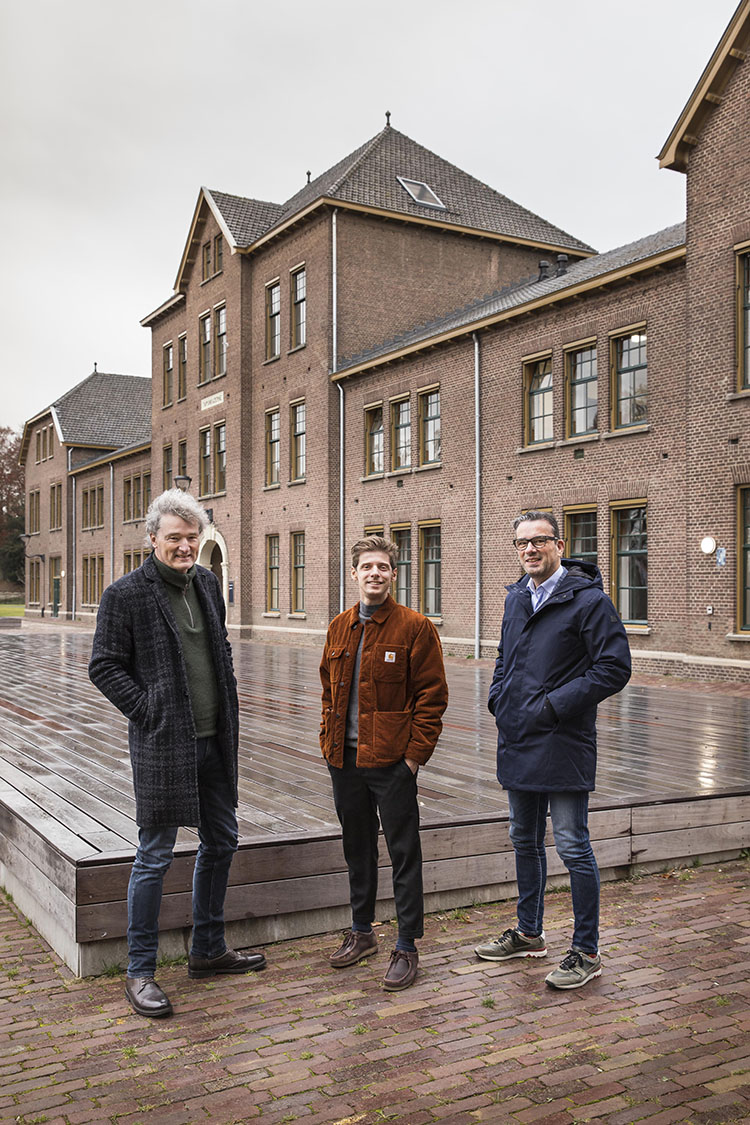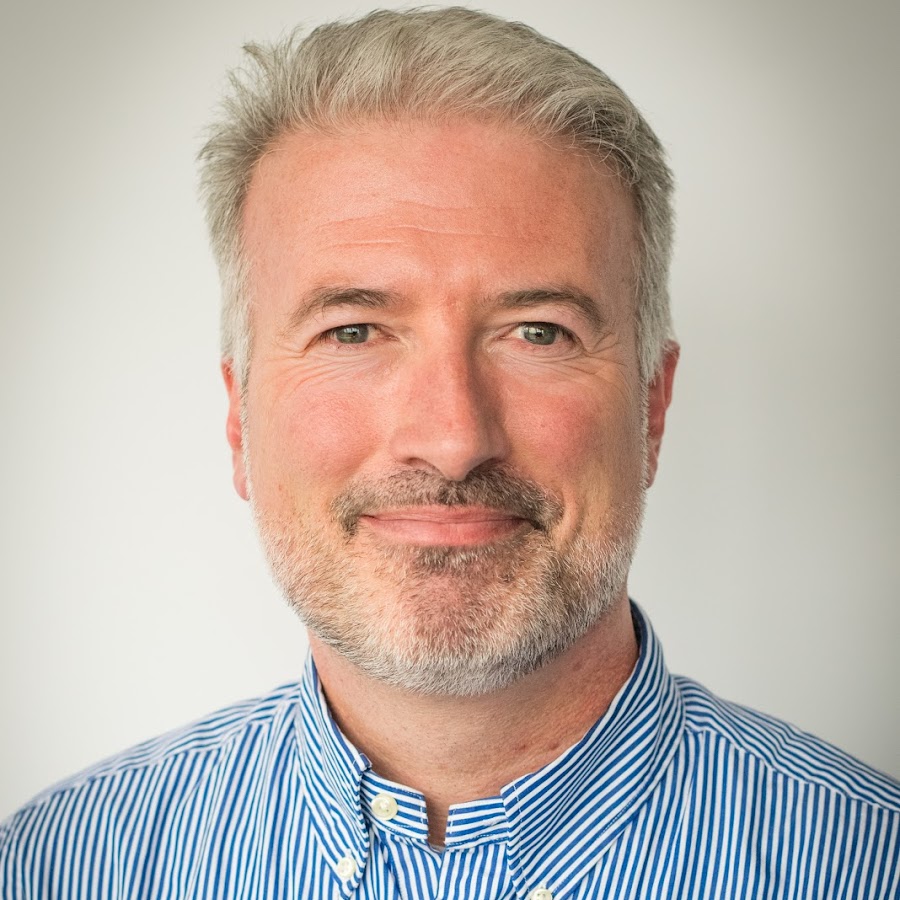The herd behaviour of pension funds
There are some 200 pension funds in the Netherlands, all involved in investing the future pensions of millions of employees. The pension sector is supervised by De Nederlandsche Bank (DNB), which sponsors PhD projects at Maastricht University to gain insight into both the performance and the investment strategies of these funds. Late last year Matteo Bonetti, born and raised in Italy, successfully defended his PhD dissertation on factors that influence investment strategy. Here he reflects on the project with his supervisors Rob Bauer and Dirk Broeders.

Rob Bauer, Matteo Bonnetti and Dirk Broeders
New insights
It’s a unique situation, Dirk Broeders confirms. The UM professor also works as a senior risk manager at DNB. “Monitoring and optimising investment policies means sifting through mountains of data. The data are anonymised and protected, and to analyse it we collaborate with the UM School of Business and Economics. Although we finance the PhD projects, the assignment is not set in stone. It’s up to the PhD candidates to contribute ideas and look for new angles.”
Educational journey
That was a breeze for Bonetti, says Rob Bauer, the second UM professor and supervisor. “Matteo came up with the ideas and plans, especially in the first year—more than we could handle, actually. Ultimately, the three of us decided the research should focus on the complex governance structure of pension funds and how this influences investment decisions. After that it was three-plus years of hard work. Matteo waded through masses of data. Rarely have I supervised a PhD student with so much patience and perseverance. He analysed all pension funds and drew some surprising conclusions. Of course there were discussions along the way, but it was all part of an enjoyable, educational journey.”
Herd behaviour
Bonetti found that the age of the directors, external advisers and the policies of other pension funds influence their investment strategy. “Pension funds exhibit a kind of herd behaviour,” he says. “Because the smaller funds tend to make the same decisions as the larger ones, these ‘followers’ perform less well. Funds that use the same advisers and administrators seem to have comparable investments, even if the pension funds are different. And the boards are typically staffed with relatively old directors with little diversity and few women. When you have an old board combined with young participants, it can result in an overly conservative investment strategy.”
Risky
Herd behaviour can be risky, Broeders acknowledges. “If something goes wrong, it’s more likely to affect many funds at once, which can have a destabilising effect.” As for what the trio will do with Bonetti’s conclusions: “We want to translate academic research into social relevance. The lack of diversity, for example, is an issue we often raise with pension funds.”

Rob Bauer studied economics at UM and financial management at TIAS Business School before obtaining his PhD in Maastricht in 1997. The UM professor is also director of the International Centre for Pension Management in Toronto and has his own consultancy firm. Along with Mieke Olaerts, he holds the Peter Elverding Chair at UM, focused on sustainability.
Matteo Bonetti obtained his bachelor’s and master’s degrees at the University of Turin. After an Erasmus exchange year at Umeå University in Sweden, he worked in Italy and Belgium before starting his PhD in Maastricht in 2016. He now works as a risk manager at DNB in Amsterdam.
Dirk Broeders studied at Tilburg University and worked for two commercial banks before joining DNB in 2002, where he is now a senior risk manager. He previously served as head of the International Organisation of Pension Supervisors. He obtained his PhD at Tilburg in 2009 and is, alongside his work at DNB, professor of Finance at UM.
Also read
-

Frederik Claasen, the head of policy at our partner organisation Solidaridad Network on the opportunities and obstacles facing smallholder farmers in their data ecosystems.
-
Computers are already capable of making independent decisions in familiar situations. But can they also apply knowledge to new facts? Mark Winands, the new professor of Machine Reasoning at the Department of Advanced Computing Sciences, develops computer programs that behave as rational agents.
-
If we were to replace plastic with paper or glass, would the environment benefit? Surprisingly, no, says professor of Circular Plastics Kim Ragaert. She is calling for an alternative approach aimed at increasing awareness of and knowledge about recycling.
- in Corporate
- in Featured
- in Researchers
- in Students

